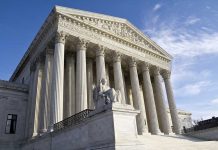
President Biden’s historic clemency actions have ignited a firestorm of controversy, raising questions about the extent and implications of presidential pardon power.
At a Glance
- Biden commuted sentences of 1,500 individuals and pardoned 39 others, marking the largest single-day clemency action in modern U.S. history
- Most recipients were on home confinement during the COVID-19 pandemic
- The administration is considering preemptive pardons, sparking debate over potential abuse of power
- Biden’s pardon of his son Hunter has fueled public criticism and scrutiny
- Experts warn that preemptive pardons could set a dangerous precedent for future administrations
Biden’s Unprecedented Clemency Actions
In a move that has sent shockwaves through the political landscape, President Joe Biden has taken unprecedented steps in granting clemency to nearly 1,540 individuals. This action, touted as the largest single-day clemency in modern U.S. history, includes the commutation of sentences for approximately 1,500 people who were released to home confinement during the COVID-19 pandemic, as well as pardons for 39 individuals convicted of nonviolent crimes.
The White House has framed these actions as part of Biden’s broader commitment to criminal justice reform, focusing on nonviolent offenders and emphasizing rehabilitation. The commutations apply to those who have served at least one year under home confinement, a measure initially implemented to reduce the spread of COVID-19 in prisons, which had become significant hotspots during the peak of the pandemic.
“America was built on the promise of possibility and second chances. As president, I have the great privilege of extending mercy to people who have demonstrated remorse and rehabilitation, restoring opportunity for Americans to participate in daily life and contribute to their communities,” President Biden said in a statement.
Controversial Pardon of Hunter Biden
Among the pardons granted, one has stirred particular controversy: the pardon of President Biden’s son, Hunter Biden, for gun and tax crimes. The decision has drawn mixed reactions, with critics viewing it as preferential treatment. A recent poll indicates that only about 20% of Americans support this decision, raising questions about the ethical implications of a president pardoning a family member.
While the President defends his actions as promoting second chances and addressing sentencing disparities, particularly for nonviolent drug offenses, the pardon of his son has undoubtedly cast a shadow over the broader clemency initiative. Biden argues that the prosecution of Hunter was politically motivated, but this justification has done little to quell public skepticism.
And there it is. President Biden pardoned his son Hunter Biden
“Today, I signed a pardon for my son Hunter. From the day I took office, I said I would not interfere with the Justice Department’s decision-making, and I kept my word even as I have watched my son being… pic.twitter.com/YzRLutcPmy
— Kadia Goba (@kadiagoba) December 2, 2024
The Preemptive Pardon Debate
Perhaps even more contentious is the Biden administration’s consideration of preemptive pardons. These would be aimed at individuals who could potentially face legal challenges under a future Trump administration’s Justice Department. This unprecedented move has sparked intense debate among legal experts and political analysts.
Critics argue that preemptive pardons could undermine the justice system and set a dangerous precedent for future presidents. There are concerns that such actions could create “impunity zones” for political allies, effectively placing them above the law before any charges are even brought. This potential abuse of the pardon power raises serious questions about the balance of power and the integrity of the justice system.
President Biden is reportedly weighing preemptive pardons for others before he leaves the White House.
Some are urging Biden to pardon prison inmates and offer preemptive pardons to people President-elect Trump considers his enemies as well as some of Biden’s family members.… pic.twitter.com/A6CUSLcebZ
— The National Desk (@TND) December 5, 2024
The Road Ahead
As the debate rages on, President Biden has pledged to continue reviewing clemency petitions, indicating that more pardons and commutations may occur before his term ends on January 20. However, the controversy surrounding these actions, particularly the consideration of preemptive pardons, is likely to intensify as President-elect Trump’s inauguration gets closer.
The use of presidential pardon power, while broad and often used as an act of grace to further public welfare, is now under intense scrutiny. As the administration weighs its options, the American public and legal experts alike will be watching closely to see how these decisions shape the future of executive power and the justice system in the United States.









